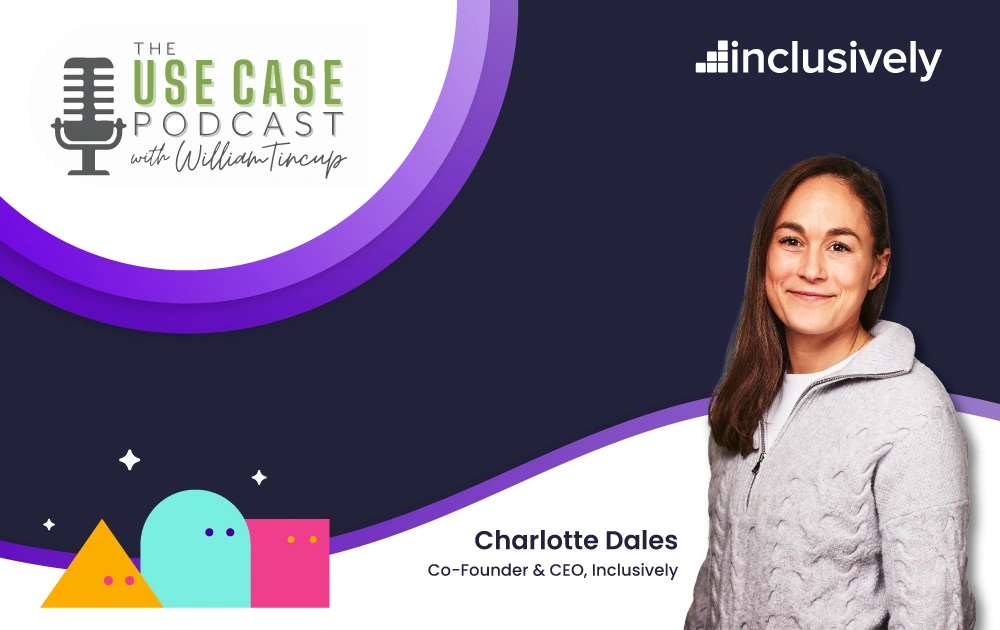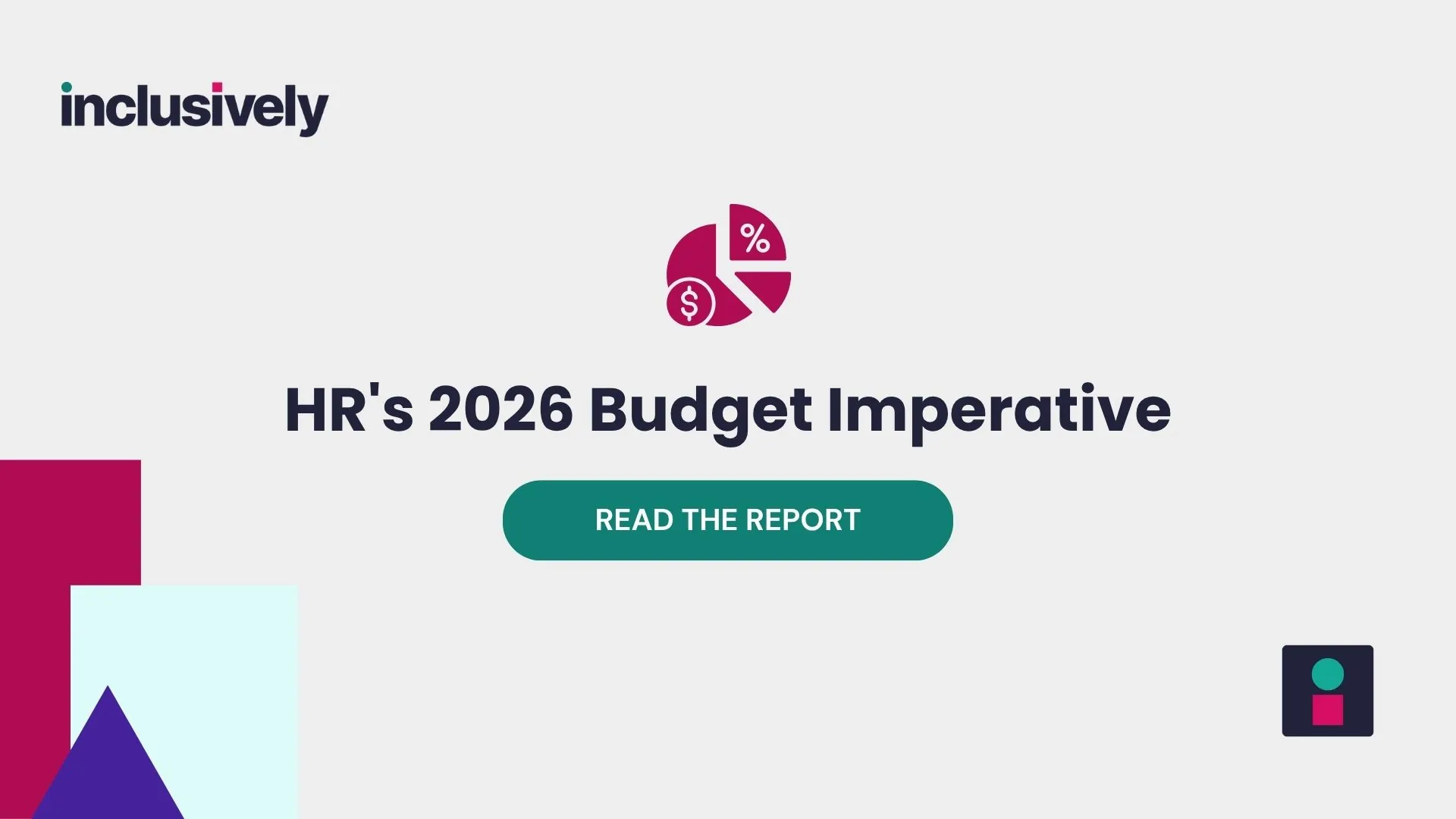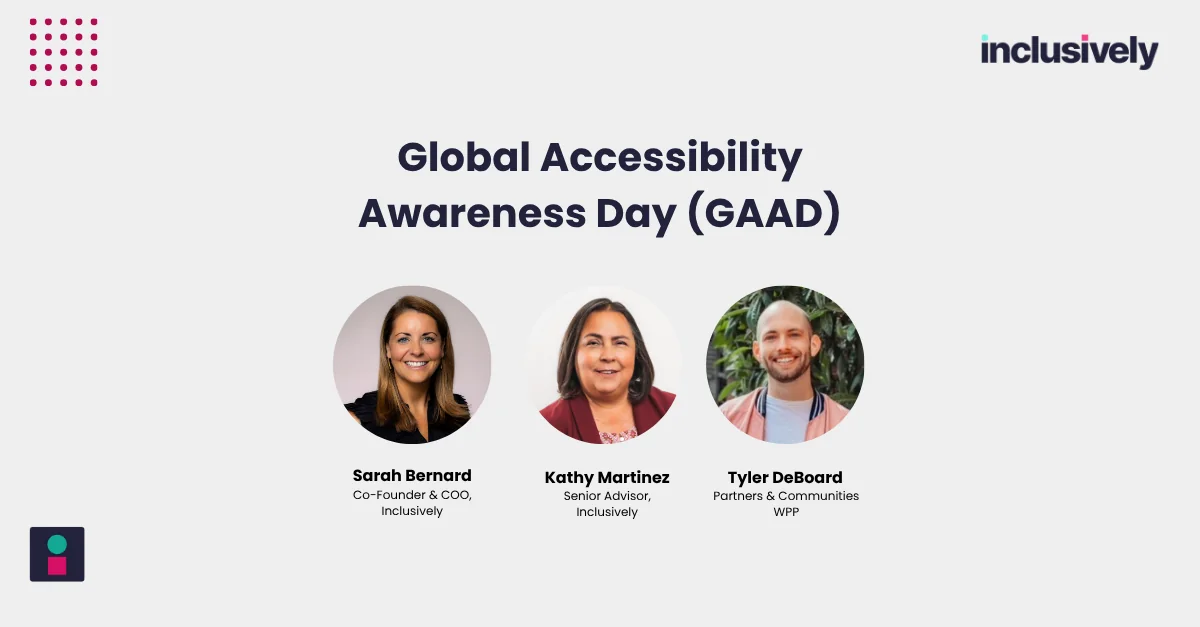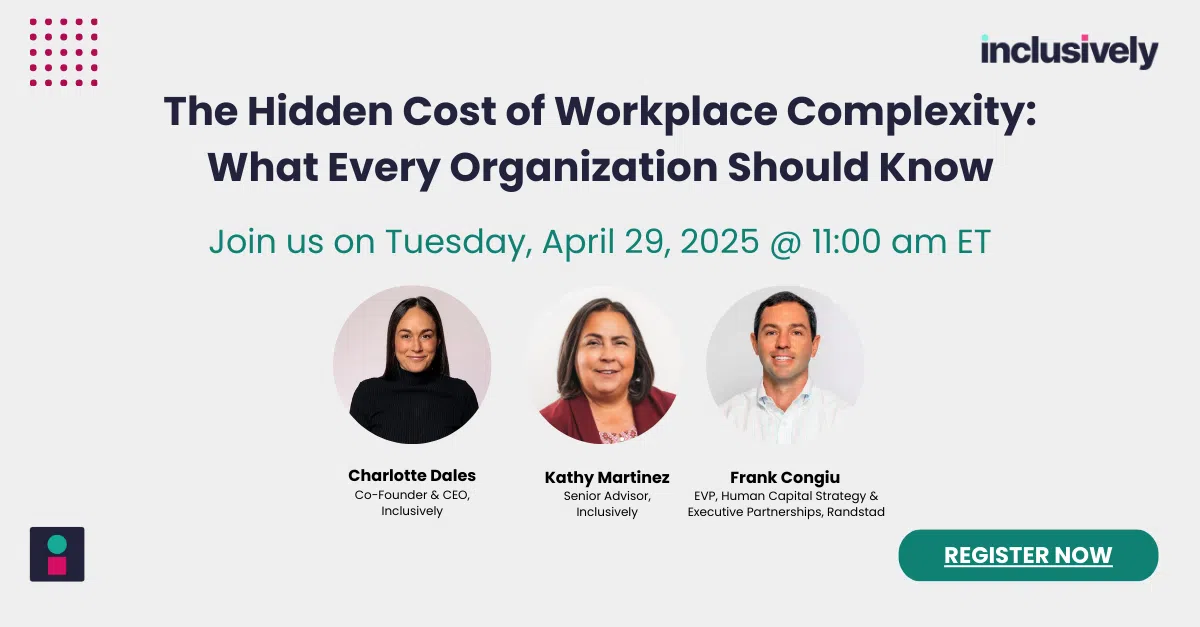Inclusively Co-Founder and CEO Charlotte Dales was recently interviewed on The Use Case podcast, a RecruitingDaily podcast hosted by William Tincup, RecruitingDaily’s President and Editor-at-Large. In the conversation between Charlotte and William, Charlotte outlines the shift that is just starting to take place around accommodations in the workplace.
Traditionally, “employers have viewed accommodations from the lens of legal and compliance,” reflects Charlotte. “They’ve viewed it reactively, only reacting if someone requests one, but there’s not really a proactive strategy, both internally, within the team that manages accommodations.”
Accommodations Can Benefit Everyone
Charlotte and William discuss how accommodations have been managed in public schools as an alternative viewpoint that could be adopted in the workplace, and also how many accommodations could benefit employees far beyond just those living with a disability. As Charlotte states, “one of the biggest impacts that employers can have is making accommodations ubiquitous across their organization and making it everyone’s responsibility to know how to accommodate different people, because at the end of the day, accommodations don’t just benefit people with disabilities. They benefit everyone.”
Accommodations don’t just benefit people with disabilities. They benefit everyone.
— Charlotte Dales, Co-Founder & CEO
Apparent vs. Non-Apparent Disabilities and the Impact on Disclosure
The interview also dives into the complexities of apparent versus non-apparent disabilities, with William sharing that he grew up legally blind. “How do we talk eloquently about the visible versus invisible parts of both disabilities but also the accommodations that go along with it?” asks William. Inclusively has found that those with apparent versus non-apparent disabilities have really differing perceptions of potential pros and cons — and that the most important aspect of the complexity is the ability to create space to accommodate people regardless of whether their disability is apparent — and therefore difficult not to disclose.
“One of the norms we’re trying to change is that you should disclose up front,” versus disclosing after you’re hired or not at all, relates Charlotte. “Our candidates do that on our platform, because they know that we’re using that data and giving it to the employer with the ability to respond. We’ve built a trust bond with our candidates that if you’re disclosing this to us and you’re going to apply for a job, employers aren’t just receiving your resume, but they’re receiving these accommodation requests with information on how to provide them and how to shift potential processes in order to accommodate them.”
Accommodations Are Often Free Or Under $500
Another topic was the perceived cost of accommodations versus reality: “I think initially people’s perception is that accommodations are physical things that cost a lot of money,” reports Charlotte. “And instead it’s like, ‘No, there are things like bringing your support animal or apps for anxiety or all these things that are under $500 or free.’ And I think that it’s really interesting when we’re demoing that, and people will be like, ‘Wait, hang on. That’s an accommodation? That’s something we do already.’ They don’t realize that by actually not just having it be something that happens reactively, but proactively, you can attract more candidates with disabilities.”
The bottom line? “I think accommodations will eventually become a company’s currency to attracting and retaining talent,” says Charlotte. “The more flexible you are and the more adaptive you can be to different people’s needs, the more highly rated you will be as an employer.”



